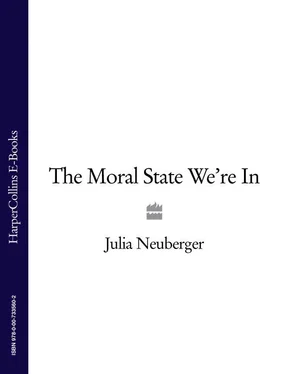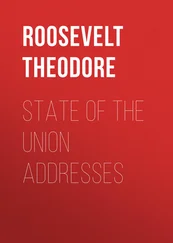These were the arguments put forward over the debate, the longest re-examination of attitudes to assisted suicide in the UK in recent years. Meanwhile, many key organizations put in their views at the same time. For instance, Help the Aged strongly opposed any change in the current law related to assisted suicide. It argued:
The prohibition on assisted suicide is designed to protect some of the most vulnerable members of society, including many older people. Any change in the law would run the risk of abuse and would fundamentally change the doctor/patient relationship. Planning and taking decisions around the end of a life are deeply personal issues and, like any other adult, older people have a right to retain control, autonomy and choice. This choice includes the right to choose to refuse medical treatment. All too often, older people who wish to exercise such control are denied the right to be involved in decisions about the end of their lives. This debate highlights the lack of clarity and safeguards around decision making for very vulnerable people who may be unable to make or communicate their own decisions at any stage of their treatment or care. Help the Aged calls on the Government to introduce legislation to strengthen and support older people’s ability to make decisions about their own care, to ensure that their wishes are respected, and to allow them to retain choice and control over their lives at every stage. *
At the same time, the National Council for Hospice and Specialist Palliative Care argued that:
The principles of palliative care affirm life whilst regarding death as a natural process to be viewed neither with fear nor a sense of failure. Death may be impossible to postpone but should not be hastened. Respect for the dignity of the individual is important, and regarded by many as paramount. Such respect is not manifest in the act of killing the patient which would merely serve to confirm the individual’s falsely devalued sense of self-worth. We recommend that there should be no change in the law to permit euthanasia. †
The Voluntary Euthanasia Society, unsurprisingly, supported Lord Joffe’s Bill, whilst the Disability Rights Commission opposed it, not on moral grounds, but because it believed that until disabled people are treated equally, with their lives accorded the same value as those of non-disabled people, their access to necessary services guaranteed, and their social and economic opportunities equal to those of non-disabled people, the ‘right to die’ legislation might jeopardize people’s right to live:
The bill would open the floodgates for people who are not just terminally ill but for those with long term physical illnesses to be helped to die. The safeguards included in the bill are simply not good enough to guard against many disabled people being included.
There is simply no system of safeguards that can detect the hidden pressures and strains from relatives and carers that may drive a disabled person to seek an assisted suicide.
The absence of support services on the ground and high quality palliative care means that there cannot be a real choice. In this context, rather than ensuring the right to die, the bill would quickly translate into a duty to die for disabled people. *
The Royal College of Nursing also came out opposing euthanasia and assisted suicide: ‘The RCN is opposed to the introduction of any legalisation which would place the responsibility on nurses and other medical staff to respond to a demand for termination of life from any patient suffering from intractable, incurable or terminal illness.’ † But that was not a totally universal view from the RCN. In a personal capacity, Karen Sanders, who chairs the RCN’s ethics forum stated: I feel strongly about euthanasia because I believe that competent adults who have incurable or insufferable diseases should have the right to make their own choices about their own lives.’
Despite those supporting or opposing Lord Joffe’s Bill who claim public opinion is on their side, it is actually extremely difficult to establish precisely what public opinion is on this issue. There is little independent information on how the public view assisted suicide, although it is clear that most major organizations concerned with the welfare of older and disabled people oppose changes to the current legislation. The Voluntary Euthanasia Society claims that 85 per cent of the population supports them, although it does not specify what, precisely, the support relates to or how it can be so sure. Many other polls ask questions that are so vague as to be almost worthless. For example, the Sun newspaper’s 1997 telephone poll asked whether terminally ill people should have the right to die with dignity; unsurprisingly, 97 per cent said yes. But the mood is shifting and Deborah Annetts, Chief Executive of the Voluntary Euthanasia Society, is right to argue that, as an increasingly secular society in which more people are living longer, our demography will itself be a catalyst for change. *
Whilst all the debate around Lord Joffe’s Bill was taking place, the Christian Medical Fellowship recommended a letter-writing campaign for people to express opposition to the Bill, but it is not clear what the response to this was. An Independent on Sunday poll in 2001 asked, ‘Should people have the right to die when they choose?’ and found-unsurprisingly, given the vagueness of the question-that 85 per cent of respondents answered yes and 15 per cent answered no. Meanwhile, a survey by the Disability Rights Commission reported that 63 per cent of people felt there should be new laws to make euthanasia or assisted suicide legal. However, more than eight out of ten respondents said measures were needed to protect disabled people from the use of ‘do not resuscitate’ notices and the withholding or withdrawal of treatment.
Much of the debate in the media has related to people dying of ‘terminal illness’ such as cancer or motor neurone disease. It is not clear whether some of the common diseases of old age, such as heart failure, dementia, or strokes, or even the natural processes of ageing itself, are typically viewed as terminal illnesses. Consequently, with the exception of some age-related organizations such as Help the Aged, the possible implications for older people of proposed changes in the law are not addressed as frequently as those for younger people. Yet it is the fear of living after a massively disabling stroke, of being completely dependent and unable to exercise one’s autonomy, that has driven the Bill’s supporters to try to get legislation through. Despite the public discussion being focused to a considerable extent on younger people, support for this legislation is at least in part about the fear of being very old and dependent, in both existential and economic terms.
There is certainly an argument for personal self-determination, to allow older people, and others who are terminally ill, to decide when they have had enough. According to that view, it is morally acceptable, for old people-or anyone else, for that matter-to be able to decide they have had enough and to exercise their autonomy. Test cases suggest that the public is increasingly sympathetic to this argument. The classic example is the 1992 case of Dr Nigel Cox, who acceded to a patient’s request-he had known her well for years-to put her out of her misery. Though charged with homicide, he was not in fact convicted and it was clear that he had the support of the patient’s family. He was not ‘struck off the medical register but was required instead to go on palliative care training, the argument being that, with more specialized knowledge, he might have been able to improve his patient’s pain control. *There has also been major debate on these issues in the House of Lords (Select Committee on Medical Ethics.) But the arguments need spelling out.
Читать дальше






![Nicholas Timmins - The Five Giants [New Edition] - A Biography of the Welfare State](/books/701739/nicholas-timmins-the-five-giants-new-edition-a-thumb.webp)





